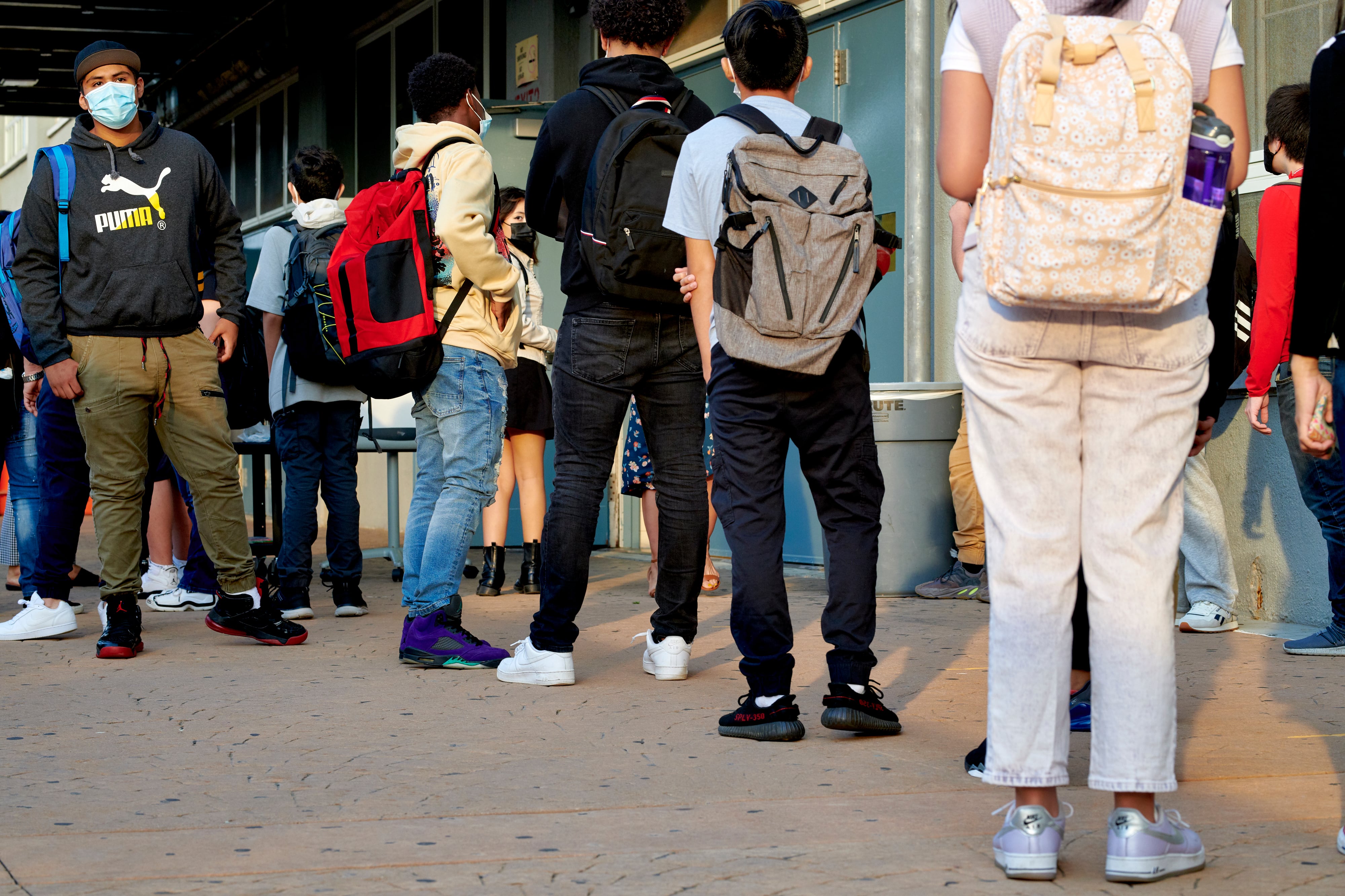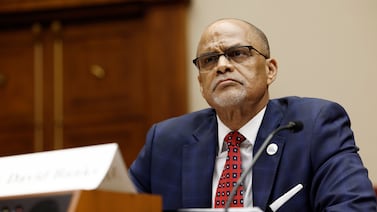The easing of COVID safety protocols helped the Detroit school district record a significant decrease in its chronic absenteeism rate this past school year, officials said, an encouraging sign for a district that has one of the highest rates in the nation.
The Detroit Public Schools Community District had seen its rate of chronic absenteeism jump to 77% in the previous year, when unvaccinated students who had possible COVID exposure were required to isolate for seven to 10 days. In October 2021, the district had more than 400 students a week in quarantine.
But this past school year, the percentage of students who were chronically absent — meaning they missed at least 10% of the school year, or 18 days — dropped to 68%, a decline DPSCD Superintendent Nikolai Vitti attributes to the end of districtwide quarantine and close-contact guidance. School administrators and educators were instead able to “focus on teaching and learning and intervention,” he said.
“Beyond anything, it was really getting back to the reform this year,” Vitti said at a school board academic committee meeting Monday. The district had projected a “two- to three-percentage point” improvement in its chronic absenteeism rate, he added.
“Our principals have become more comfortable being accountable to improving student attendance, and that meant more problem solving with families and with students, incentivizing improved attendance,” Vitti said.
Before the pandemic, DPSCD had committed to a multi-pronged reform effort to reduce absenteeism, including offering wraparound services for students, hiring attendance agents, and partnering with community organizations.
By the end of 2018-19, in part because of those efforts, chronic absenteeism fell to 62%, from 70% in 2017-18.
At Tuesday’s school board meeting, Board President Angelique Peterson-Mayberry said she has heard some school principals complain that they have limited strategies and staff to address absenteeism.
“When there are vacancies with staff, it depends (solely) on the attendance agent at that location,” Peterson-Mayberry said. “Sometimes the schools feel strapped, because they feel like they can’t make children come to school.”
Vitti said he’s heard similar concerns over the years.
“A lot of our teachers, attendance agents mainly, will say: ‘What is the recourse after I do a home visit? After I make a phone call?’” he said.
For the coming school year, Vitti said Tuesday, the district may consider adding punitive measures to address absenteeism. In a preview at a finance committee meeting last month, Vitti said he would propose new policies that would penalize students who missed more than 50% of the school year, either requiring them to repeat the grade or, in the case of students who attend schools outside their neighborhood, assigning them back to their neighborhood school.
Vitti said the district had planned to institute the penalties years ago, but held off because of the pandemic. “Now that we are back and functioning on a reform agenda, I think that it’s time to do some things that we planned on doing,” he said.
Meanwhile, DPSCD plans to retain its attendance agent positions, with 20 of those agents shifting to its central office to provide districtwide attendance outreach. The remaining attendance agents will be placed in schools with the highest concentrations of poverty and chronically absent students.
The district is also set to launch 12 school-based health hubs in the next three years to provide medical resources and services that families would need to keep students attending school regularly.
Ethan Bakuli is a reporter for Chalkbeat Detroit covering Detroit Public Schools Community District. Contact Ethan at ebakuli@chalkbeat.org.







